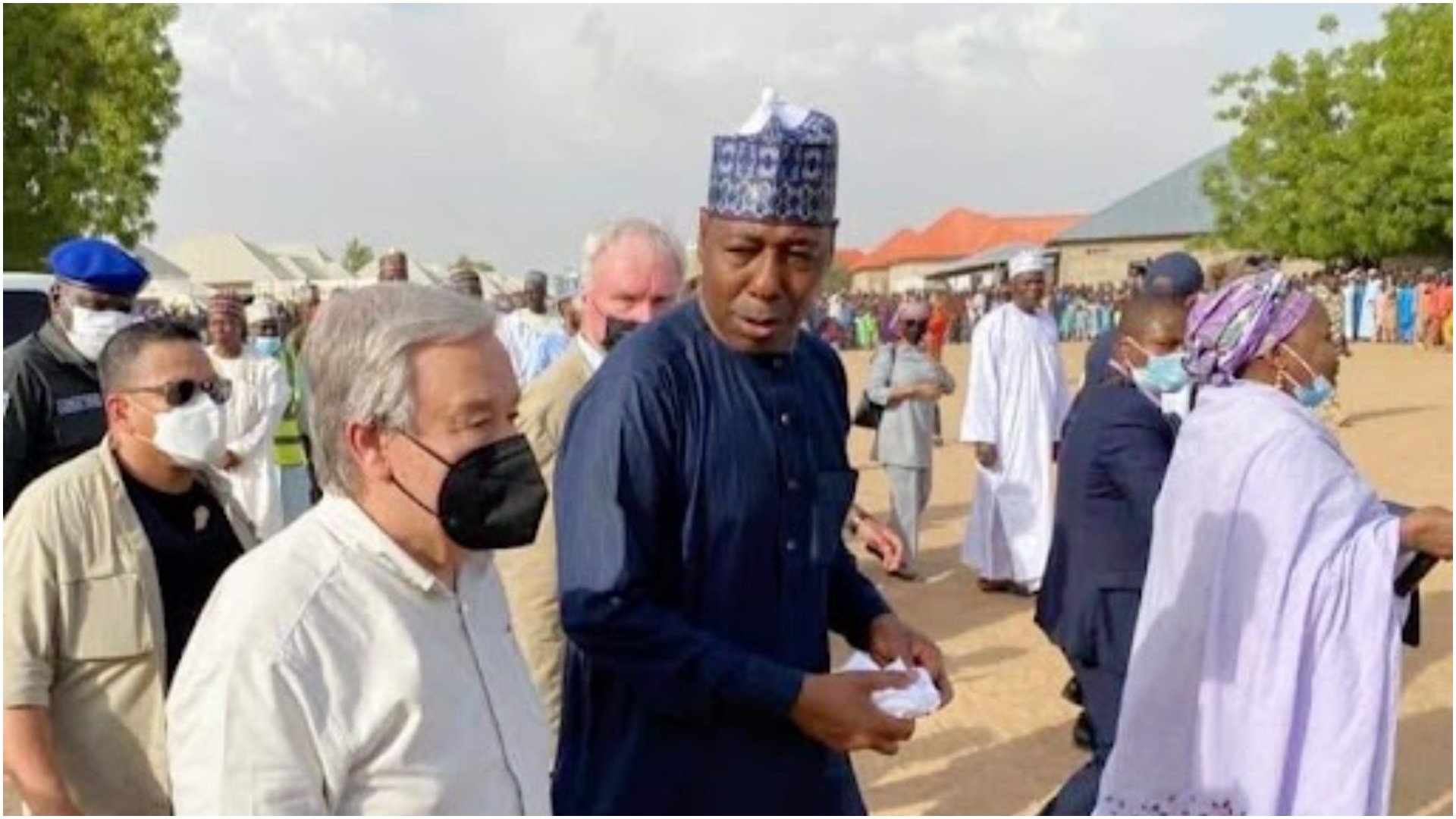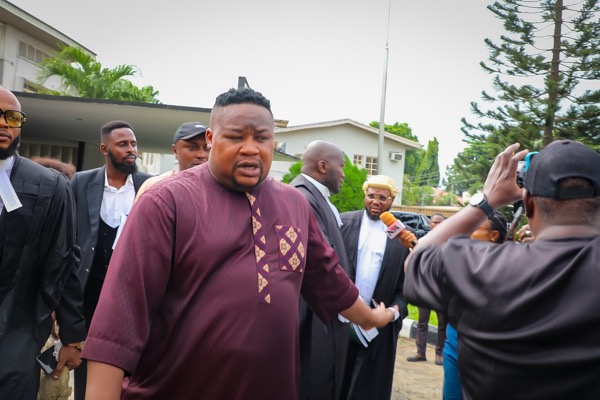The Governor of Borno State, Prof Babagana Zulum with Mr Antonio Guterres the Secretary-General of United Nations (UN) during his visit to the state
Mr Antonio Guterres the Secretary-General of United Nations (UN) who was in Borno State has there may be light at the end of the tunnel after all. Borno State has been the hotbed of Boko Haram insurgents for many, many years now but the UN scribe who is on tour of West Africa said the state is beginning to wear a new look and new hope.
The UN chief who spoke during a visit to the Northeast state as part of his two-day visit to Nigeria, Guterres said his visit was that of solidarity, especially, with the victims of terrorism, in the holy month of Ramadan, noting that, “The fact that I came to Borno State is symbolic of our priority to the world to fight terrorism and to create solutions for the victims of terrorism.”
“Now, the Borno State I have heard about in many circumstances around my life as High Commissioner for Refugees and then as Secretary-General was a Borno State of terrorism, of violence, of displacement, of despair. This is not the Borno that I found today. The Borno I found today is a Borno of hope. It’s a Borno with future and I was very impressed to see the policy that is being applied here, recognising that we don’t fight terrorism just by military means.“In fact, terrorism – addressing the root causes of terrorism – and the policy of the government, which is aiming at reestablishing fully the confidence between the people and the government is an essential element that I witnessed today being implemented in reality.

“And on the other hand, it is absolutely essential to understand that, in a situation like this, it’s not enough to provide humanitarian assistance. I am grateful to all those from the international community that have supported the people of Borno with humanitarian assistance.
“But the people I met today want more than that. The people I met today, in reality, want to go back home in safety and dignity. And when one looks at the state, one understands that the way to [fight] terrorism effectively, is to provide not only hope, but a future of reality. It is to invest in livelihoods, it is to invest in the reintegration of those that have been in the past recruited by these terrorist groups, by Boko Haram.
“I was amazed to see today in the centre [that] those that have been terrorists, they want to integrate in the society and contribute to society. And the policy that is in place here is a policy of reconciliation, it is a policy of reintegration and it is a policy aiming at a development perspective to allow for terrorism to be definitely eliminated …thanks to the fact that people are able to construct their future in confidence with those that are governing them,” he explained.
While expressing delight with the achievements of Borno State Governor, Prof. Babagana Zulum, the UN Secretary-General said: “So, I will be your advocate, Mr. Governor. Your advocate within the international community, asking the international community to support and to invest in the Borno of hope.”
On how the UN was going to assist Borno to get back on track, he said: “The UN has its demining programme. I believe that there is a full possibility of cooperation with the government of Borno in relation to that. But, of course, it is not only demining.
“It is, as I said, investing in the future of people – investing in schools, in the hospitals, in the creation of jobs, in the livelihoods, in helping those programmes, so that they are able to deliver, to go to the market and making Borno, as I said, not only a state of hope, but a state of reality, in which there is no room for terrorism.”
He revealed that he had promised to fully be supportive of the project of reintegration of terrorists, adding: “And when that project is formulated, I am ready to be an advocate of it and to be telling different countries around the world that they need to invest, because the best thing we can do for peace is to reintegrate those that in a moment of despair became terrorists but now want to become good citizens and want to contribute to the well-being of their brothers and sisters.”





